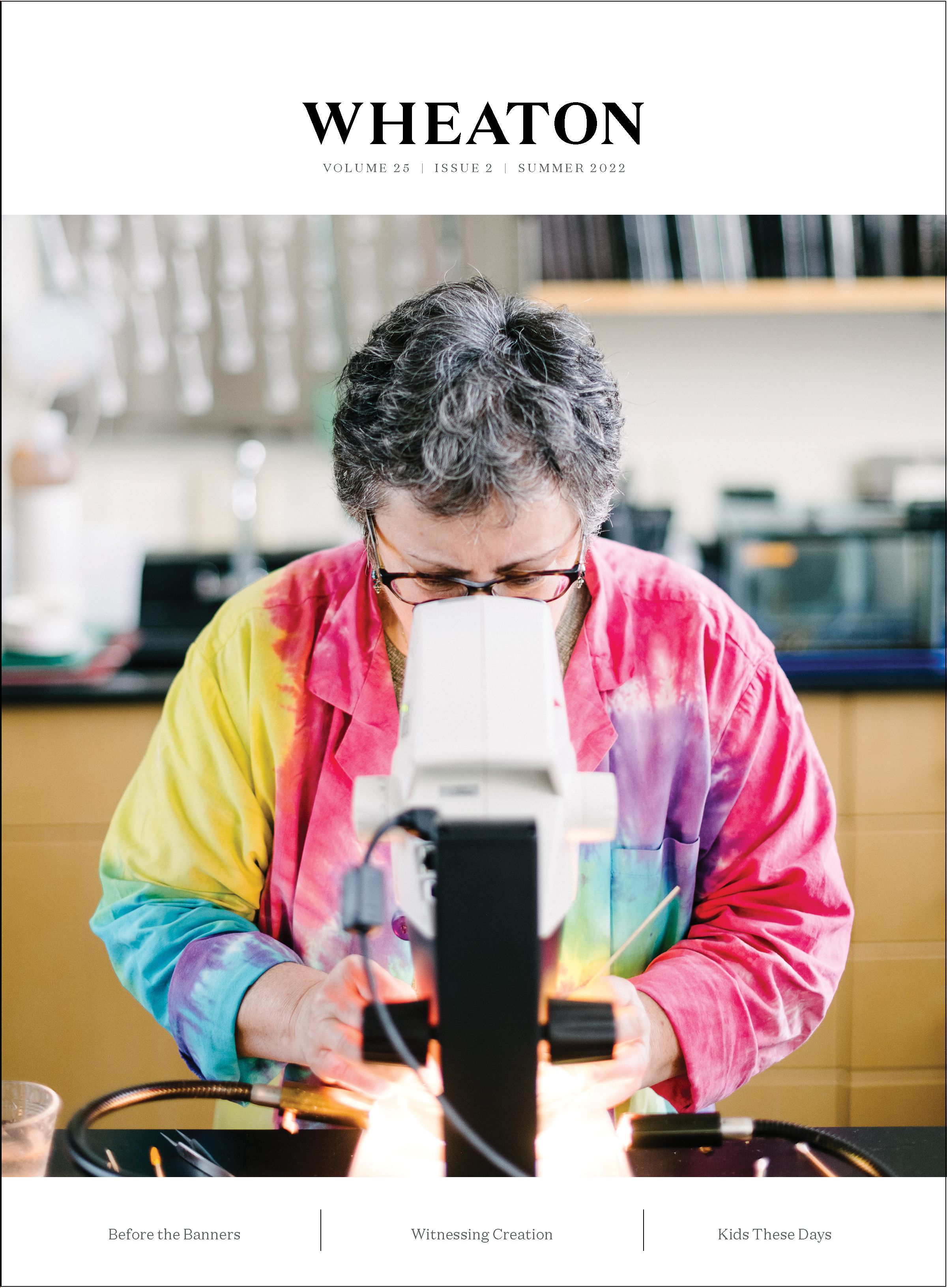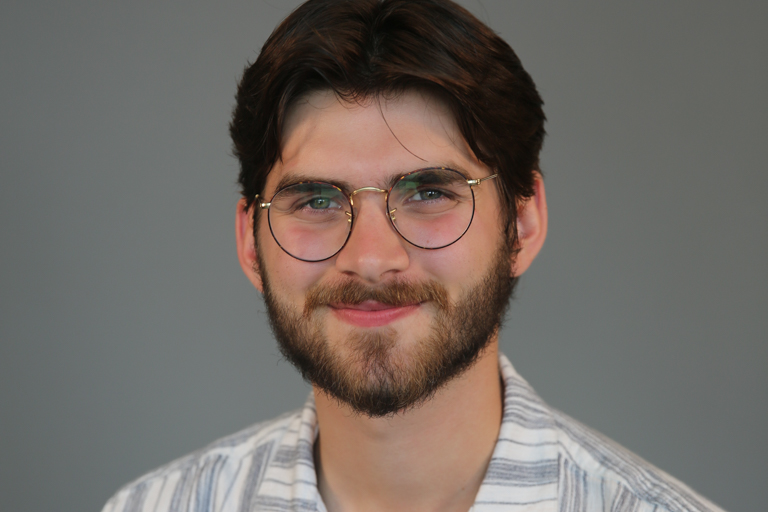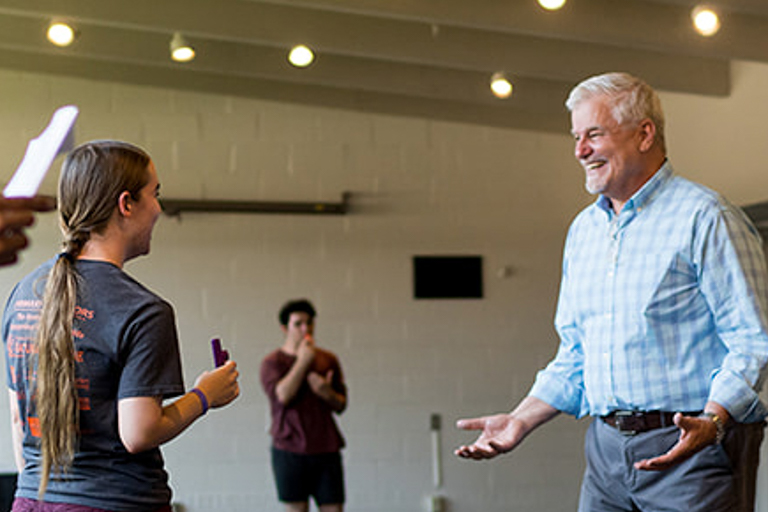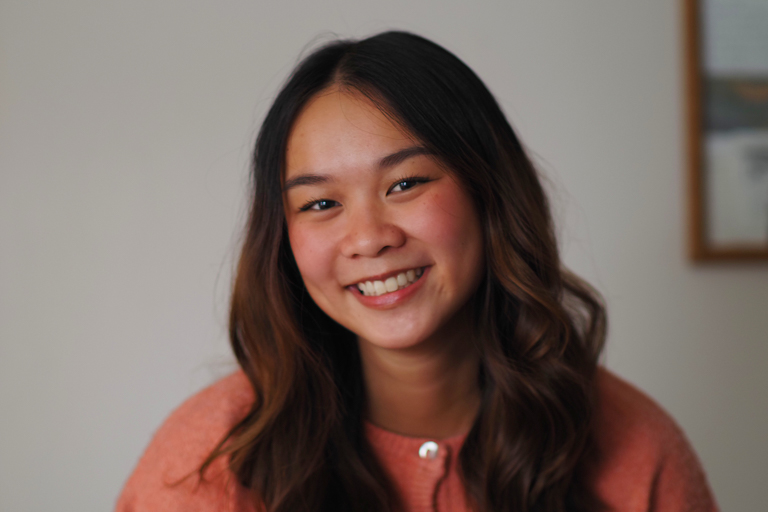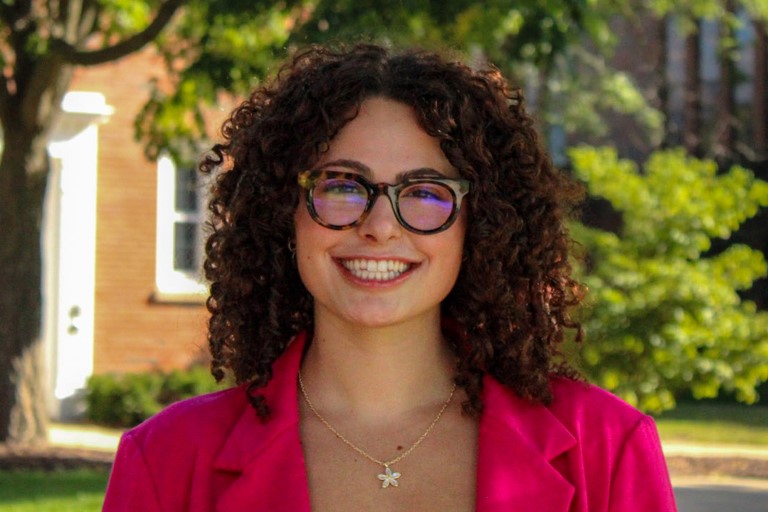Inspiring Rebellious Hope
Having recently graduated from Wheaton’s liberal arts nursing program, Haley Morgan ’22 looks back at how her experiences on campus equipped her to keep Christ at the center of her healthcare profession.
Words: Eliana Chow ’21
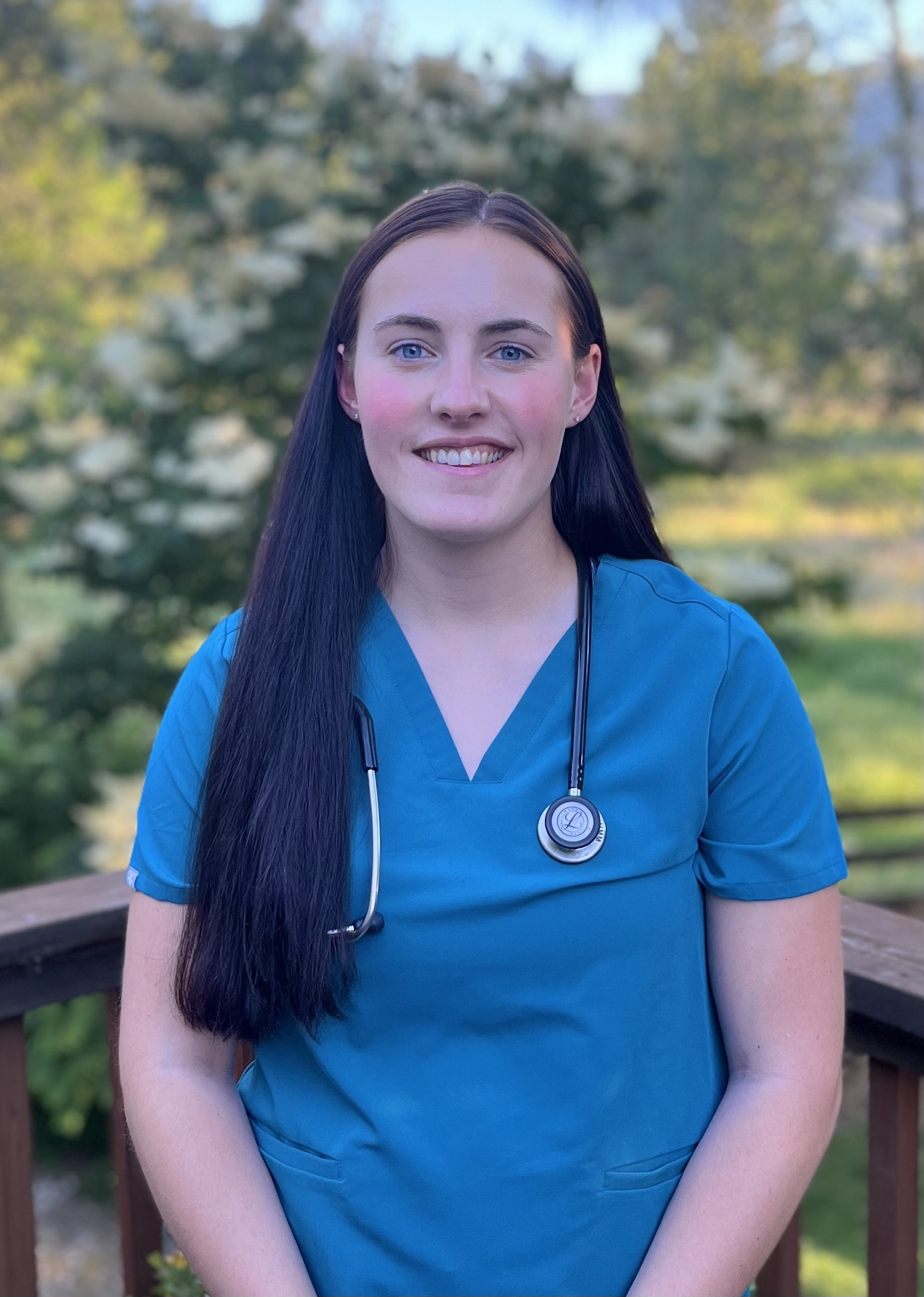
As part of her dual-degree with Wheaton, Haley Morgan is pursuing a BSN from Carroll College in Helena, Montana.
When Haley Morgan ’22 was a freshman in high school, her younger cousin was diagnosed with a form of bone cancer. Throughout her cousin’s cancer journey, Morgan heard stories about the unending well of support the nurses offered during the gamut of chemotherapy, Utah hospital stays, and home rest. Seeing these events unfold afar from her hometown in rural Montana, Morgan found herself face-to-face with her calling.
“I already had a strong desire to work in the sciences, and I knew I was a people person, so nursing had always seemed like it would be a good fit,” Morgan said. “But watching how the nurses came alongside my cousin really solidified that for me. I also see so much of what I call ‘rebellious hope’ in many of those patients. No matter what the prognosis is, their will to live and sense of joy that they carry is one of the most profound and beautiful things I’ve ever seen. I want to be a part of that.”
Several years later, as Morgan sifted through her college options, her decision came down to Cedarville University in Ohio and Wheaton College. In the end, she decided in favor of Wheaton’s robust liberal arts nursing program. “I had no doubt in my mind, when the time came to make the decision, that God was calling me to Wheaton,” she said. “A lot of that certainty stemmed from the sense of community that I felt while visiting campus during my senior year of high school and the really Christ-centered education.”
Wheaton’s dual degree in liberal arts and pre-nursing allows students like Morgan to explore the vast array of undergraduate course offerings at Wheaton while completing all their pre-nursing requisites like biology, chemistry, anatomy, and general math. After three years at Wheaton, students attend an accredited nursing school of their choice for 1–2 years, with the first 30 credits credited to both their Wheaton and nursing school degrees. “All the different classes I took helped me develop critical thinking skill sets that they really emphasize in nursing school,” Morgan said. “I learned how to view healthcare through different lenses—theology, sociology, even literature—and not merely from a scientific angle.”
Looking back on her decision to prioritize a holistic college experience over training that might, on paper, have seemed more specialized, Morgan can identify several ways that Wheaton laid an undeniable foundation for her to thrive once she landed in the nursing cohort at Carroll College in Helena, Montana.
Academically, Morgan remains grateful for classes like “Comedy and Tragedy” with English faculty member Dr. Alison Gibson. Although she initially dreaded the idea of performing Shakespeare in front of her peers, Morgan quickly found her footing thanks to Dr. Gibson’s encouragement and passion for storytelling. Because of those early experiences in performance and presentation, Morgan feels at home conducting laboratory demonstrations with her cohort and interacting with patients alongside doctors and more experienced nurses.
Morgan also highlights “The History of Health and Medicine in the United States,” a class that was integral to her nursing foundation. She remembers one section of the class covering the long history of medical professionals and scientists exploiting African American patients in the name of research, which has led many in these communities to distrust the U.S. healthcare system. “We have to be honest about where we as a medical field have gone wrong and how we can grow in empathy through those patient relationships,” Morgan affirmed.
She was also able to engage in a vibrant residence life, living on the same women’s floor (2 South in Smith-Traber Hall) all three years she spent on Wheaton’s campus. Far from being separate from her nursing training, she saw how deeply integral those years of community building could be to her future profession as a nurse. While serving as the resident adviser for her floor during her junior year, she learned how to adapt quickly to change, balance her own self-care while attending to the needs of others, and approach all aspects of life with a heart for ministry. As she enters a reeling healthcare climate that is rife with short-staffed hospitals, burnout, and adapting to change, those lessons in advocacy and care will prove pivotal.
“It’s not as common to be a Christian and be in healthcare anymore,” Morgan reflected. “I think Wheaton really prepared me for that—to step into a ‘secular’ environment, navigate it, and continue to keep Christ at the center of my care. I wouldn’t be able to do that without all of my time at Wheaton in the classroom, in the community, and the opportunities I had there.”
